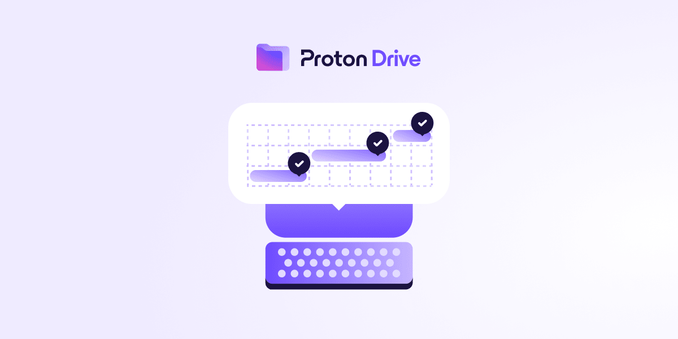they said I could become anything so I became a proponent of enforcing GDPR compliance upon multinationals operating within the EU using all means available to me (up to and including becoming a bus) #gdpr #copilot #dpa #dataprotection #sueeverybody #sysadmin #wtf https://www.edpb.europa.eu/notify-data-breach_en
#dataprotection
#BraveBrowser mette in atto un blocco su Microsoft Recall per salvaguardare i tuoi dati! Proteggi la tua privacy, scegli saggiamente. #DataProtection
https://www.tomshw.it/business/brave-blocca-microsoft-recall-per-la-privacy-2025-07-24

@si2mev @bent0_b0x @protonprivacy @alternativeto
Yep, I agree it's awful they didn't focus on the #LinuxApp instead, although they started doing something: https://proton.me/blog/drive-roadmap-summer-2025#:~:text=and%20will%20support%20our%20upcoming%20Linux%20Drive%20app.
https://proton.me/blog/drive-roadmap-summer-2025#:~:text=At%20the%20same%20time%2C%20we%E2%80%99re%20continuing%20to%20improve%20the%20SDK%20%E2%80%94%20preparing%20it%20for%20public%20release%20and%20ensuring%20it%20provides%20a%20solid%20foundation%20for%20the%20upcoming%20Linux%20Drive%20app%2C%20a%20popular%20favorite%20on%20the%20community%20wishlist.
I'm not against the #AIAssistant, though. Just don't force it on me :)

Stay ahead of cyber threats with Endpoint Detection and Response (EDR)!
Discover how EDR solutions protect your business, detect threats in real time, and respond fast to security incidents.
Read the full guide https://bit.ly/4lIODtR
"If Prime Minister Mark Carney's election was meant to be a rejection of authoritarian trends south of the Canadian border, things are not off to a good start.
That’s Robert Diab’s conclusion given what’s been rolled into Bill C-2, the government’s Strong Borders Act, tabled in June.
While past governments have unsuccessfully attempted to make it easier for police to access Canadians' private data, specifically the subscriber information attached to an internet service provider account or an internet protocol address, he says the current government’s kick at the legal access can is in a league of its own.
“(The provisions) do more to expand the state’s power to access private data in Canada than any law in the past decade,” Diab, a professor of law at Thompson Rivers University, specializing in law and technology, and constitutional rights, wrote in a piece for Tech Policy.
In an interview with National, he says he was surprised by how many new search powers have been rolled into the omnibus bill, how extensive they are and how many are unrelated to border security.
Among the lawful access provisions buried among border security measures, the bill proposes expanding the legal definition of subscriber information. While there’s currently no definition in the Criminal Code, in 2014, the Supreme Court of Canada in R v Spencer defined it as “the name, address, and telephone number” of a customer associated with an internet protocol (IP) address.
Last year, in R v Bykovets, the Court went a bit further, defining subscriber information as “the name, address, and contact information” associated with an individual IP address."
https://www.nationalmagazine.ca/en-ca/articles/law/in-depth/2025/a-big-brother-bill

"The federal government is trying to use Medicaid data to identify and deport immigrants. So EFF and our friends at EPIC and the Protect Democracy Project have filed an amicus brief asking a judge to block this dangerous violation of federal data privacy laws.
Last month, the AP reported that the U.S. Department of Health and Human Services (HHS) had disclosed to the U.S. Department of Homeland Security (DHS) a vast trove of sensitive data obtained from states about people who obtain government-assisted health care. Medicaid is a federal program that funds health insurance for low-income people; it is partially funded and primarily managed by states. Some states, using their own funds, allow enrollment by non-citizens. HHS reportedly disclosed to DHS the Medicaid enrollee data from several of these states, including enrollee names, addresses, immigration status, and claims for health coverage.
In response, California and 19 other states sued HHS and DHS. The states allege, among other things, that these federal agencies violated (1) the data disclosure limits in the Social Security Act, the Privacy Act, and HIPAA, and (2) the notice-and-comment requirements for rulemaking under the Administrative Procedure Act (APA)."
https://www.eff.org/deeplinks/2025/07/eff-court-protect-our-health-data-dhs

Cambodia announces comprehensive data protection law: Draft legislation establishes data protection framework requiring two-year implementation period for Southeast Asian nation. https://ppc.land/cambodia-announces-comprehensive-data-protection-law/ #DataProtection #Cambodia #PrivacyLaw #DataPrivacy #CyberSecurity

I thought 'consent or pay' was effectively unlawful in the EU? I keep seeing it cropping up on websites.
You don't need a boardroom to take security seriously.
It’s time to rethink who’s really responsible.
<https://mercurysecurity.io/cybersecurity-governance-just-got-personal/>
#Cybersecurity #SolopreneurLife #Infosec #Governance #DataProtection #DigitalResilience #SmallBusinessSecurity
A bold new marketing advice, free of charge for the companies out there: Offer products and services that actually solve people's problems instead of paying those who invade their privacy online!
--
#privacy #DataProtection #marketing #business
IDs at the ready
Age assurance requirements under the UK Online Safety Act kick in this Friday.
UK users will have to hand over their sensitive data to cyber bouncers without being sure they'll protect their privacy.
ORG is calling for these age assurance providers to be regulated
https://www.openrightsgroup.org/press-releases/org-calls-for-age-assurance-industry-to-be-regulated/

Age assurance is a red flag. A big one
By not requiring regulation of the industry in the Online Safety Act, UK users are thrown into a wild west of privacy and security standards.
Sign our letter to demand the UK government regulates the industry NOW
https://action.openrightsgroup.org/sign-open-letter-dsit-regulating-age-assurance

Millions of UK users will be asked to upload ID documents or have a biometric facial scan to check their age.
You'll do this with different providers for different platforms without a regulatory guarantee.
This multiplies the risk of phishing, sextortion, data breaches and data reuse.
The UK Online Safety Act requires age assurance to restrict access to porn AND any content that could be ‘harmful’ for under 18s.
If UK users don't submit to these checks, they'll either be blocked from accessing the platform entirely, or features like DMs and certain content will be restricted.
And what amounts to 'harmful' content is open to broad interpretation.
UK users have no choice with age assurance.
You must use the methods and provider picked by the platform that you're trying to access.
Providers aren't required to meet specific privacy or security standards.
Platforms don't have to choose trusted or certified providers.
You should be able to pick a provider that can be used interoperably across every platform.
The ransomware crisis is a wake-up call for organizations to strengthen their cyber defenses and protect against evolving threats. #Ransomware #CyberSecurity #DataProtection https://redoracle.com/News/Ransomware-Crisis-Strengthening-Cyber-Defenses.html

You can choose your banks.
There are several that work in the browser.
I also don't understand why everything has to run in app.
Every additional app weakens the overall system and controlling the data becomes a hell of a ride.
More #DigitalSelfDefense please
#DigitalConstraint
#DataProtection
#Datenschutz #digitalzwang
#DigitaleSelbstverteidigung
Maximize your cybersecurity with expert SOC services!
Dive into the ultimate guide to Managed CSOC & Cyber Security Operation Center solutions.
Stay protected, stay ahead.
Read more: https://bit.ly/3GZ5QjK
Btw. I guess, that some Android/iOS #smartphone apps already do the same. I.e. recording everything, sending to third party, doing #AI based analysis, etc.
I'ld rather not talk anything private when such a device is in the same room.
We are living in a #dystopia and most people seem to enyou it.
